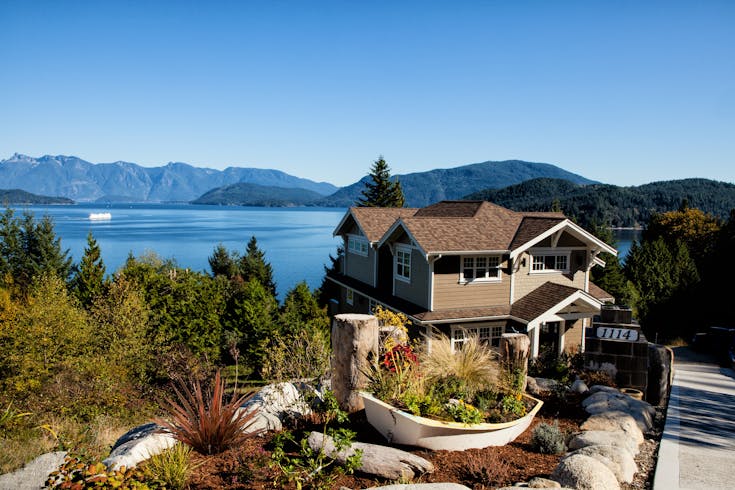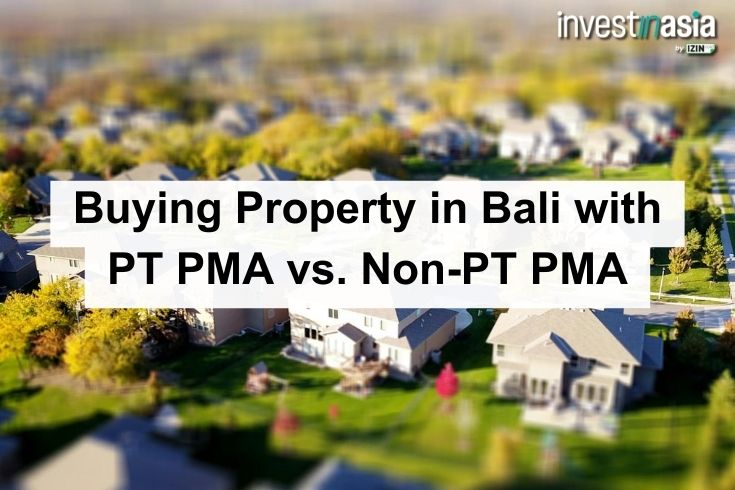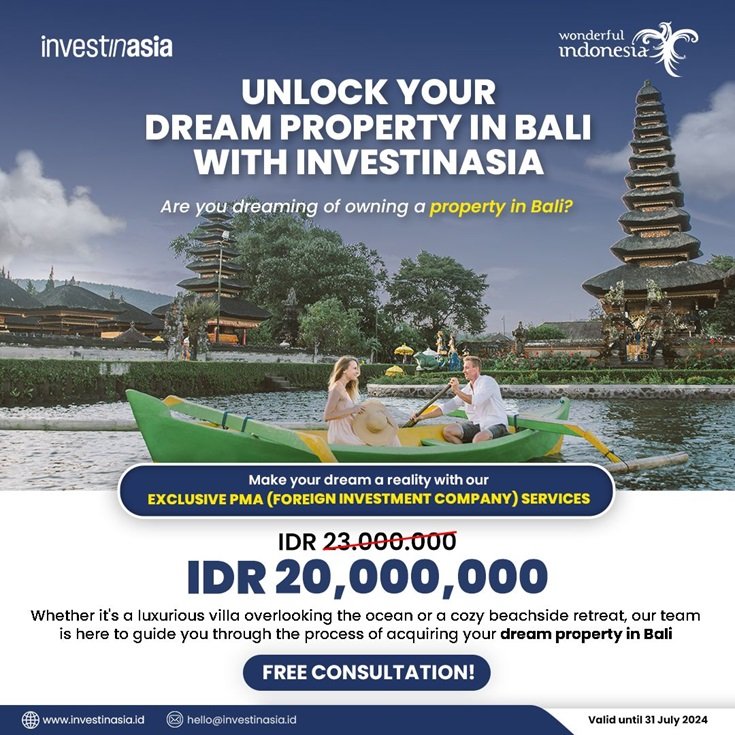Key Takeaways:
- Buying property in Bali through a PT PMA (Perseroan Terbatas Penanaman Modal Asing) allows foreign investors to legally own property under Indonesia’s Investment Law No. 25 of 2007 and obtain a Hak Guna Bangunan (HGB) title.
- A PT PMA acts as a foreign-owned limited liability company approved by the BKPM (Indonesia Investment Coordinating Board), granting ownership and operational rights to investors.
- By contrast, Non-PT PMA structures depend on leasehold agreements restricted to Indonesian citizens.
Bali, with its stunning landscapes and vibrant culture, has long been a magnet for property investors seeking a piece of paradise. However, navigating the legal landscape of property ownership in Bali can be complex, especially for foreigners. Two common avenues for property acquisition in Bali are through PT PMA (Perseroan Terbatas Penanaman Modal Asing/Foreign Company) and Non-PT PMA structures. Understanding the differences between these options is crucial for making informed investment decisions.
Also read: 6 Advantages of Establishing a PMA Company in Indonesia
Legal Ownership
Under a PT PMA (Foreign-Owned Company), investors can obtain Hak Guna Bangunan (HGB) or Hak Pakai titles in Bali, granting long-term ownership and construction rights in line with Indonesia’s Agrarian Law (UUPA 1960). This structure ensures full operational control for residential or commercial use while maintaining legal compliance for foreign investors.
Conversely, Non-PT PMA setups only permit leasehold (Hak Sewa) agreements—usage rights for 25–30 years—offering limited control compared to PT PMA ownership. (check Bali Leasehold Properties: A Comprehensive Guide)
Also read: Land Zoning in Bali: Guide for Property Investment
Tax Benefits


Buying Property in Bali with PT PMA vs. Non-PT PMA A PT PMA in Bali offers access to corporate tax benefits, including deductible expenses, asset depreciation, and eligibility for tax treaty relief under Indonesia’s investment regime. PT PMA entities are taxed at an effective 22% corporate income tax rate (as of 2024) and can register properties under their business name for optimized property tax (PBB) treatment.
By comparison, Non-PT PMA investors under leasehold agreements are taxed as individuals, facing standard income and lease taxes without business deductions—making PT PMA ownership significantly more tax-efficient for long-term investors.
Also read: Bali Property Tax: A Complete Guide
Operational Flexibility
Establishing PT PMA in Indonesia offers greater flexibility in conducting business operations and expanding within Indonesia. Investors can pursue a wide range of business activities under this structure, thereby maximizing their growth potential.
Conversely, Non-PT PMA arrangements are often bound by the terms of the leasehold, limiting operational scope and flexibility.
Cost and Setup
While PT PMA offers substantial benefits, it comes with higher initial costs and involves more complex bureaucratic processes. Investors need to navigate through legal requirements and administrative procedures, which can be time-consuming and resource-intensive.
On the contrary, Non-PT PMA structures entail lower upfront costs and a simpler entry process, albeit with limitations imposed by lease durations.
Investment Security


Buying Property in Bali with PT PMA vs. Non-PT PMA PT PMA provides investors with robust legal protection under Indonesian investment laws, enhancing the security of their investment. This framework offers safeguards against potential risks and uncertainties, giving investors peace of mind.
However, the security of investments under Non-PT PMA structures depends largely on the specific terms of the lease and local legal conditions, which may vary.
Long-term Potential
For investors looking for long-term growth and expansion opportunities in Bali, PT PMA is often the preferred choice. With its favorable legal framework and operational flexibility, PT PMA facilitates sustainable business ventures and residency options.
On the contrary, Non-PT PMA structures are more suitable for individuals seeking temporary or medium-term residency without extensive business operations.
Also read: Mistakes When Buying Property in Bali: 9 Things to Avoid
Also read: Bali Property Market: 2024 Outlook and Insights
In conclusion, the decision between PT PMA and Non-PT PMA structures for buying property in Bali depends on various factors, including legal ownership preferences, tax considerations, operational flexibility, and long-term goals.
PT PMA offers numerous advantages in terms of ownership rights, tax benefits, and investment security. However, establishing a PT PMA in Bali entails numerous requirements and processes. To simplify the PMA registration and accelerate the property acquisition process in Bali, you can rely on InvestinAsia’s service. We offer PMA Incorporation for Foreign Property Acquisition.
Our team of professionals will guide you through the entire process, ensuring that no requirement is overlooked and that the registration proceeds seamlessly.
Reach out to our team now for a and take advantage of our exclusive offer!





